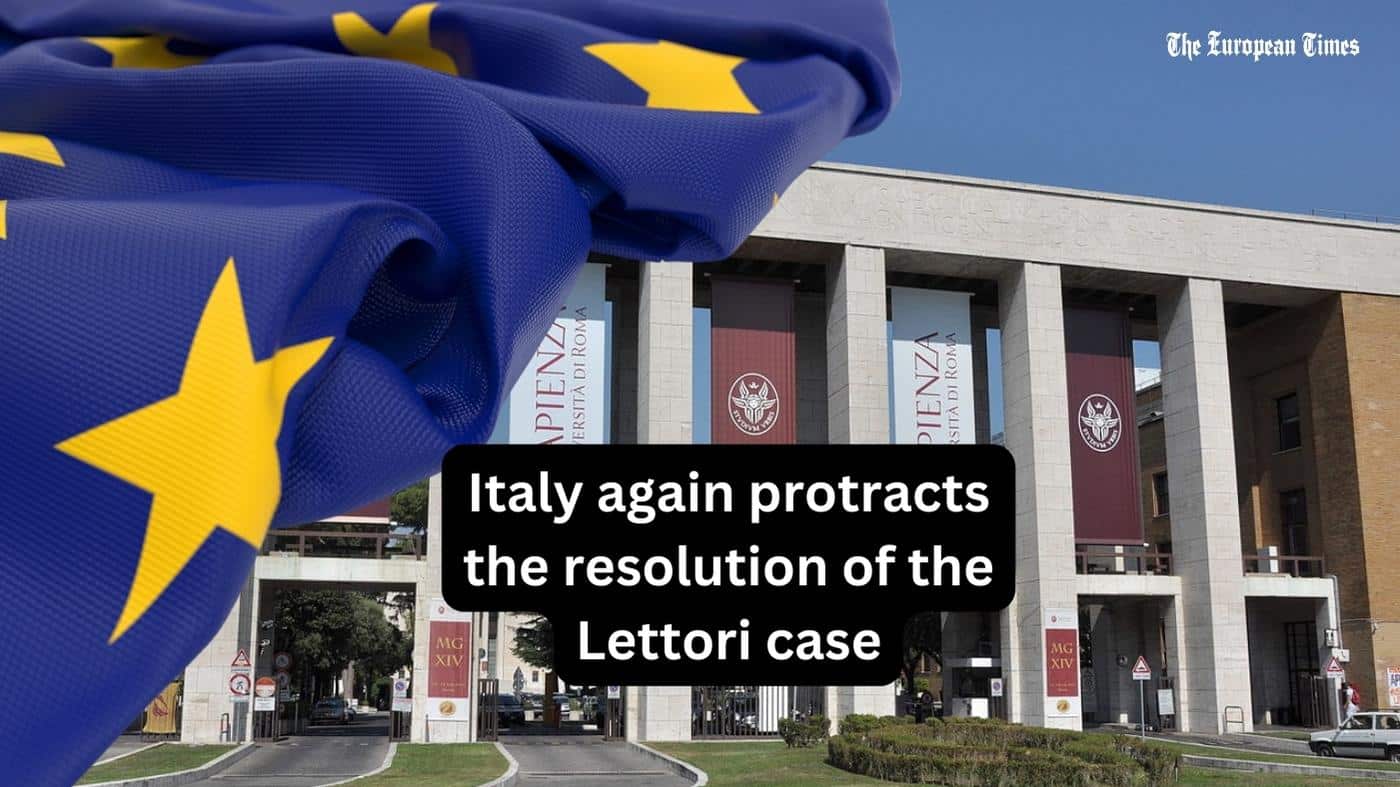Over a month from the deadline given by the European Commission for the payment of settlements to foreign-language lecturers(Lettori) for decades of discriminatory treatment, the Meloni government last Thursday passed a Decree-Law that sets a 90-day period within which administrative arrangements to pay the compensation must be finalized.
In its January press release announcing the advance of infringement proceedings to the reasoned opinion stage, the Commission reminded Italy that the settlements were due in accordance with the sentence in enforcement case C-119/04, the last of four rulings of the Court of Justice of the European Union(CJEU) in favour of the Lettori in a line of litigation that extends back to the seminal Allué ruling of 1989. Like all enacted Italian legislation, the Decree Law was published in the Gazzetta Ufficiale.
Article 38 of the Decree Law updates a 2017 law, the terms of which legislated for the adoption within 90 days of an interministerial decree the provisions of which were to resolve the Lettori question. Six years on the Decree Law amends the 2017 law to allow another 90 days for another interministerial decree to resolve the question. The legislation also provides for penalties for non-cooperating universities.
As May 30th approaches, a day the Lettori have come to call Pilar-Allué Day in ongoing commemoration of her 1989 CJEU victory on that date, Lettori in universities across Italy reacted furiously to the latest protraction of the settlement of the case. The response of retired Scottish lecturer Anne Marie McGowan, who over a 40-year teaching career at La Sapienza University Rome and Tor Vergata University Rome never worked under conditions of parity of treatment, was representative.
Anne commented:
“Implicit in the updating of the 2017 law is a recognition that a Lettore law which has been almost six years on the statute book has never been implemented. Over this six-year period many colleagues have retired. Others have passed away without ever having received justice. And these six years are just the tail end of a timeline of evasion of Treaty obligations that extends all the way back to Allué. The Commission just cannot continue to indulge Italy’s effrontery and protraction.
The article “Italy, A Test Case of the Efficacy of Infringement Proceedings against a Most Intransigent Member State” gives the context to a case which is troubling scholars of the infringement proceedings and the EU conscience. The Art. 228 enforcement procedure and the attendant pecuniary penalties were designed to bring closure for non-implementation of prior first-stage infringement rulings. But the present infringement proceedings were opened for evasion of an actual enforcement ruling. Thus, Italy’s intransigence gives scope for a merry-go-round of evasion which can continue indefinitely under present arrangements.
Placing the right to parity of treatment in the context of the overall rights of European citizens, the commission states that the right “is perhaps the most important right under community law and an essential element of European citizenship”. The Lettori case clearly demonstrates that this supposedly sacrosanct Treaty right can be withheld over the course of a worker’s entire career. Further, it can be withheld with impunity under present arrangements.
“La Sapienza” University of Rome provides an instructive example of misreadings of EU justice which have tried and exasperated Lettori all over Italy. “La Sapienza” was one of six sample universities whose employment contract was used by the Commission to successfully prove discriminatory working conditions in infringement case C-212/99. Follow-on enforcement case C-119/04 for non-implementation of C-212/99 was to award the Lettori a reconstruction of career based on the minimum parameter of part-time researcher or more favourable conditions won.
Yet, the La Sapienza administration never subsequently inserted a clause in the employment contract to acknowledge the C-119/04 ruling. A reconstruction of career based on the minimum parameter of part-time researcher would have resulted in a salary lower than the contract salary. Hence the administration held that by allowing its Lettori employees maintain the contract salary it was awarding the more favourable treatment prescribed in the enforcement ruling. The glaring error in this reasoning was that the contract had been ruled discriminatory by the CJEU and the more favourable parameters won before local courts should have been awarded, as Commission correspondence to the “La Sapienza” Lettori confirms.
Implementing the CJEU enforcement ruling merely entails identifying the beneficiaries of the Allué jurisprudence, their years of service, and the appropriate parameter for calculating the settlement for reconstruction of career. It baffles the Lettori that a task of such administrative simplicity has not yet been accomplished. It baffles the Lettori too that the Commission has indulged byzantine and unworkable arrangements on the part of Italy which have complicated the payment of the settlements.
Asso. CEL.L, a La Sapienza-based union, is an official complainant in the Commission’s infringement proceedings against Italy. With the assistance of FLC CGIL, Italy’s largest trade union, it conducted a national census of working and retired Lettori which documented to the Commission’s satisfaction the non-payment of the settlements for discrimination due under the CJEU case law. The two unions will shortly meet to decide a joint response to the recent Decree Law.
Kurt Rollin is Asso. CEL.L representative for retired Lettori. Like Anne Marie Mc Gowan, he never worked under parity of treatment conditions over the course of his teaching career at “La Sapienza”. Reflecting on the Meloni government Decree Law, Mr Rollin said:
“The Commission, guardian of the Treaty, holds that the right to parity of treatment is the most important right under the Treaty. In a comedy or novel, a plot in which a wily state evades and eludes the prescriptions of a supranational authority might come across as funny. But Italy’s protraction and disregard of its Treaty obligations to the Lettori has human consequences which are anything but funny. The Commission must now immediately refer the case to the Court of Justice.”





